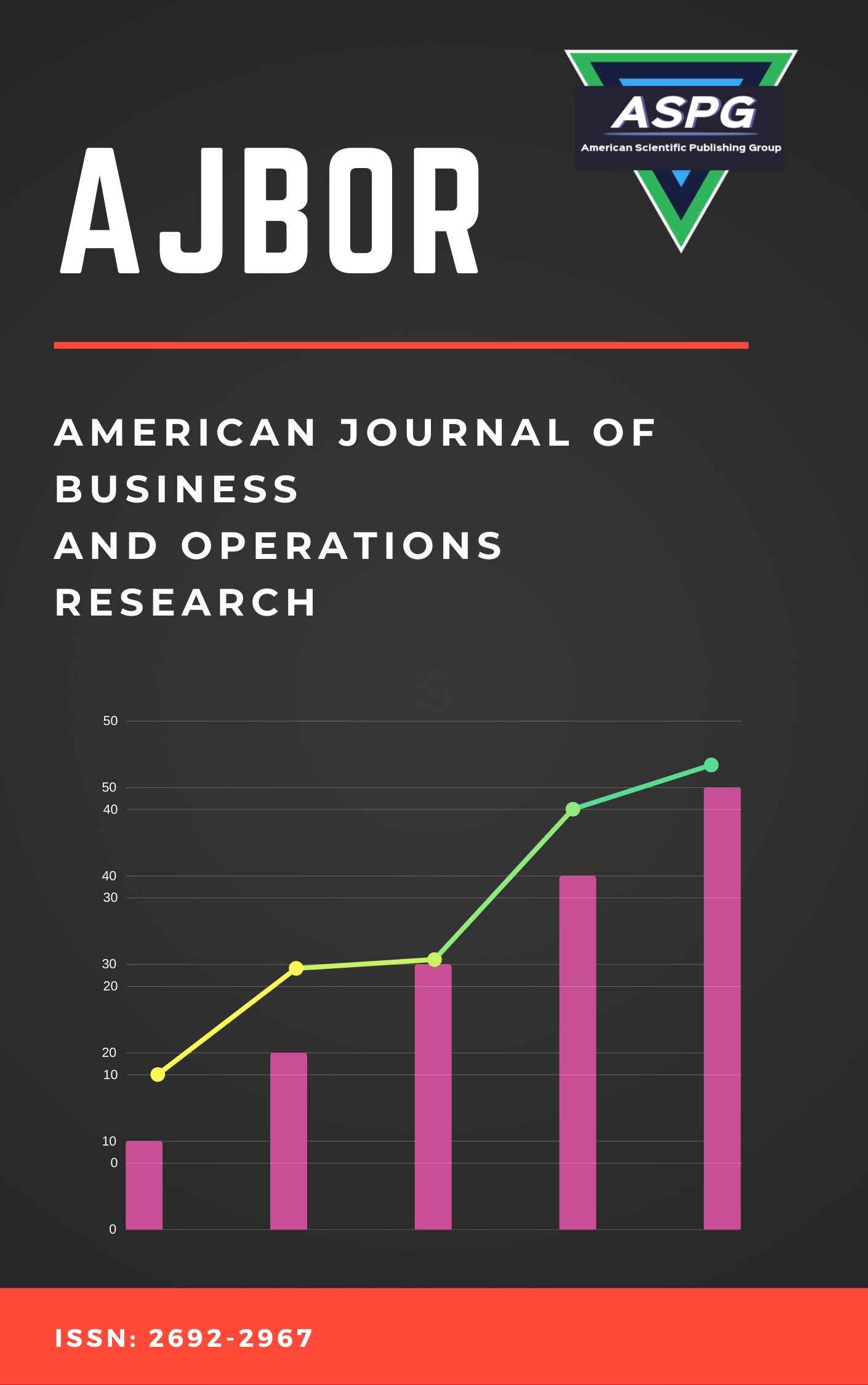

Blockchain technology has the potential to revolutionize supply chain management (SCM) by increasing transparency, improving efficiency, and reducing costs. This paper reviews the business applications of blockchain technology in SCM and identifies future directions for its use. We explore the current applications of blockchain technology in SCM, including tracking and tracing of goods, verification of product authenticity, and automating supply chain processes. Then, we examine the benefits and challenges of implementing blockchain technology in SCM and discuss the potential impact on various stakeholders, including suppliers, manufacturers, distributors, retailers, and consumers. Following, we identify future directions for research and development in blockchain technology for SCM, including the integration of AI and ML, the use of smart contracts, and the development of new blockchain-based business models.
Read MoreDoi: https://doi.org/10.54216/AJBOR.010201
Vol. 1 Issue. 2 PP. 60-69, (2020)
The e-commerce industry is continuously growing, and personalized customer engagement has become a crucial aspect of business success. In this paper, we propose a smart recommendation system using a business intelligence approach to enhance customer engagement and increase sales. We explore the use of machine learning algorithms to generate personalized product recommendations, incorporating customer behavior analysis and historical data. Our proposed approach considers various factors such as purchase history, browsing history, demographics, and social media activities to generate personalized recommendations. The system's effectiveness is evaluated using metrics such as click-through rate, conversion rate, and revenue generated. We believe that our proposed approach can provide e-commerce businesses with an effective way to increase customer engagement and sales while improving the overall customer experience.
Read MoreDoi: https://doi.org/10.54216/AJBOR.010202
Vol. 1 Issue. 2 PP. 70-76, (2020)
With the growth of e-commerce, accurate demand forecasting has become a critical aspect of successful business operations. Traditional demand forecasting techniques such as time-series analysis, moving averages, and exponential smoothing have been used for years, but they have limitations in capturing the complex and dynamic nature of e-commerce demand. In this paper, we explore innovative approaches to demand forecasting in e-commerce. Specifically, we discuss the use of tree-based Machine Learning (ML) techniques as well as advanced statistical models such as Bayesian networks and hierarchical models. We provide a case study of successful implementations of innovative demand forecasting techniques in e-commerce companies. The results show that our approach can significantly improve inventory management and logistics strategies, leading to increased profitability and customer satisfaction.
Read MoreDoi: https://doi.org/10.54216/AJBOR.010203
Vol. 1 Issue. 2 PP. 77-83, (2020)
To evaluate and promote ecologically responsible practices in the sintering business, conducting a sustainability evaluation of sintering flue gas is essential. An important step in making iron and steel, sintering releases flue gas emissions that, if not controlled, may harm the environment. Reducing emissions, improving energy efficiency, managing waste, using water, utilizing resources, monitoring community effects, complying with regulations, conducting a life cycle assessment, and continuously improving are all part of the assessment's extensive scope. When these aspects are considered, stakeholders may better understand the economic, social, and environmental effects of sintering flue gas management. This paper used the multi-criteria decision-making (MCDM) methodology to evaluate the criteria. We used the DEMATEL method as an MCDM method. The DEMATEL is used to build the relation between the criteria. We collect ten criteria in this study. We compute the criteria weights to show this study’s best and worst criterion. The DEMATEL method is used to draw the effect diagram between criteria.
Read MoreDoi: https://doi.org/10.54216/AJBOR.010204
Vol. 1 Issue. 2 PP. 84-92, (2020)
The dynamics of financial risk assessment in banking necessitate robust methodologies that harness the potential of intelligent data mining. In this study, we propose an applied approach that integrates sophisticated data mining techniques, notably XGBoost, within the context of banking data. Addressing the limitations of conventional risk assessment methodologies, our research emphasizes the need for a more precise and nuanced approach to identifying potential risks inherent in financial portfolios. Leveraging exploratory data analytics, meticulous preprocessing, and advanced modeling techniques, our methodology meticulously unraveled the intricate landscape of financial data. Through the application of XGBoost and comparative analysis against Support Vector Regression (SVR) and Random Forest (RF) models, this study elucidates the superiority of XGBoost in accurately predicting financial risk. Moreover, distributional analysis of socio-demographic attributes and loan amounts unveiled significant insights into risk determinants. The results underscore the pivotal role of intelligent data mining in refining risk assessment strategies within banking sectors. The comparative analysis, distributional insights, and superior predictive performance of XGBoost collectively emphasize the potential for advanced data mining techniques to revolutionize risk evaluation methodologies, empowering informed decision-making processes in navigating financial complexities.
Read MoreDoi: https://doi.org/10.54216/AJBOR.010205
Vol. 1 Issue. 2 PP. 93-100, (2020)